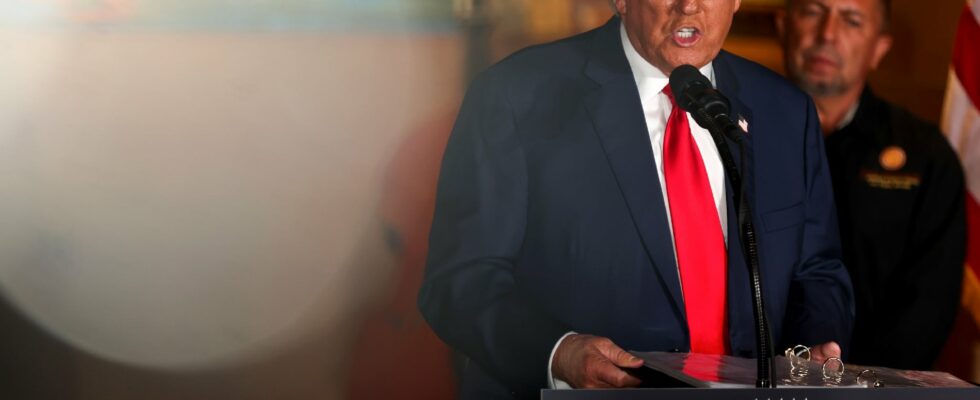Donald Trump may not be completely off the hook. Special counsel Jack Smith asked a federal appeals court on Monday, August 26, to overturn a lower court judge’s decision to dismiss the charges against former President Donald Trump for withholding classified documents after he left the White House. The former president, who faces 40 counts to which he has pleaded not guilty, was accused of taking hundreds of government documents and keeping them after he left office. A possible trial of the Republican presidential candidate, however, could not be held before the presidential election on November 5.
Why the focus on the White House candidate? In written arguments, Jack Smith, the special counsel in charge of the two federal investigations into Donald Trump, accuses Florida Judge Aileen Cannon of making a complete mistake in ruling on July 15 that his appointment as special counsel in the case and the funding for his work violated the Constitution’s sections on appointments and spending. Indeed, Judge Aileen Cannon dismissed the Trump lawsuit last month, ruling that Smith’s work is so important that he should have either been confirmed by the Senate or explicitly authorized by Congress. That’s the argument Trump’s lawyers have made in defense of the case, which has consistently argued is invalid because Smith was not appointed or funded in accordance with the Constitution.
A “misinterpretation” of the laws
In doing so, she “departed from authoritative Supreme Court precedent, misinterpreted the statutes authorizing the appointment of the special counsel, and failed to adequately consider the long tradition of attorney generals appointing special counsel,” the special counsel continued in his letter. “Her reasoning could undermine the established functioning of the Justice Department and call into question hundreds of appointments in the executive branch,” including in Defense, Foreign Affairs and the Treasury, Smith added. The defense now has 30 days to respond, and then the special counsel will have three weeks to make a counterargument. In addition, USA Today recalls that Judge Aileen Cannon, who was appointed by Donald Trump, made a number of unusual decisions in this case that were favorable to the former president.
The case, one of four criminal proceedings against Trump, accused him of compromising national security by keeping documents, including military plans and information about nuclear weapons, in his private residence after his presidency ended, instead of turning them over to the National Archives as required by law. He was also accused of attempting to destroy evidence. The most serious charges carried up to 10 years in prison.
Without ruling on the merits of the case, Judge Cannon relied in particular on the position expressed by conservative Supreme Court Justice Clarence Thomas in the unprecedented decision of the highest court in the country on July 1 granting the President of the United States broad criminal immunity. In a separate concurring opinion, Judge Thomas had challenged the legality of the appointment of Jack Smith in another case, the federal proceedings against Donald Trump for attempts to illegally reverse the results of the 2020 election. Nevertheless, this surprising rejection by Judge Aileen Cannon of Donald Trump’s criminal case in Florida “could jeopardize not only future special prosecutors, but also any federal prosecutor or senior official occupying a temporary position, according to legal experts,” reports an article in Washington Post.
